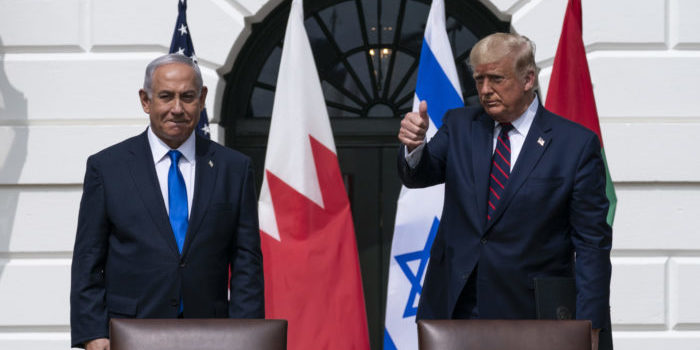(Headline USA) President Donald Trump’s Middle East envoy said Tuesday that a three to five year timeline for reconstruction of Gaza, as set out in a temporary truce agreement, is not a viable post-war plan for the battle-torn territory.
Trump’s top envoy, Steve Witkoff, made the case as the U.S administration renewed its call on Arab nations to relocate displaced Palestinians and as Trump prepared to meet with Israeli Prime Minister Benjamin Netanyahu at the White House later Tuesday.
“To me, it is unfair to explain to Palestinians that they might be back in five years,” Witkoff told reporters. “That’s just preposterous.”
Egypt and Jordan, as well other Arab nations, have flatly rejected calls by Trump to relocate the territory’s 2.3 million Palestinians during post-war rebuilding of the territory.
But senior administration officials continue to press the case for relocation of Palestinians on humanitarian grounds.
“At some point we have to look realistically. How do you rebuild Gaza,” said White House national security adviser Mike Waltz. “What does that look like? What’s the timeline? These people are sitting with literally thousands of unexploded ordnance, in piles of rubble.″
The White House’s focus on reconstruction comes as the nascent truce between Israel and Hamas hangs in the balance.
The Israeli prime minister is facing competing pressure from his coalition to end a temporary truce against Hamas militants in Gaza and from war-weary Israelis who want the remaining hostages home and for the 15-month conflict to end.
Trump, meanwhile, remains guarded about the long-term prospects for the truce.
“I have no guarantees that the peace is going to hold,” Trump told reporters Monday.
The leaders’ talks are expected to touch on a long-sought Israel-Saudi Arabia normalization deal and concerns about Iran’s nuclear program, but hammering out the second phase of the hostage deal will be at the top of the agenda.
Since returning to office, Trump has called for relocating Palestinians from Gaza to neighboring Egypt and Jordan, even as Egyptian President Abdel Fattah el-Sissi and Jordanian King Abdullah II have rejected it.
Saudi Arabia, the United Arab Emirates, Qatar, the Palestinian Authority and the Arab League have joined Egypt and Jordan in rejecting plans to move Palestinians out of their territories in Gaza and the occupied West Bank.
Netanyahu arrived in Washington for the first foreign leader visit of Trump’s second term.
Netanyahu met with Waltz and Witkoff on Monday began the daunting work of brokering the next phase of a ceasefire agreement.
Netanyahu said in a statement that the meeting with Witkoff and Waltz was “positive and friendly.”
The Israeli leader said he would send a delegation to Qatar to continue indirect talks with Hamas that are being mediated by the Gulf Arab country, the first confirmation that those negotiations would continue. Netanyahu also said he would convene his security Cabinet to discuss Israel’s demands for the next phase of the ceasefire when he returns to Israel at the end of the week.
Witkoff, meanwhile, said he plans to meet with Qatar’s prime minister, Sheikh Mohammed bin Abdulrahman Al Thani, in Florida on Thursday to discuss the next phase in the ceasefire. Qatar and Egypt have served as key intermediaries with Hamas throughout the conflict.
Adapted from reporting by the Associated Press

